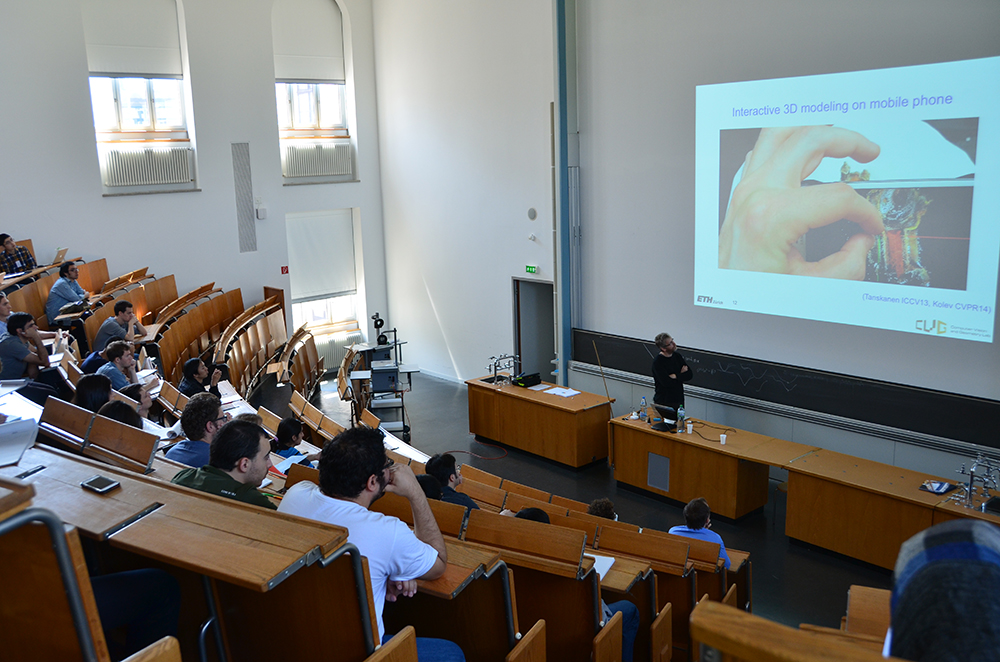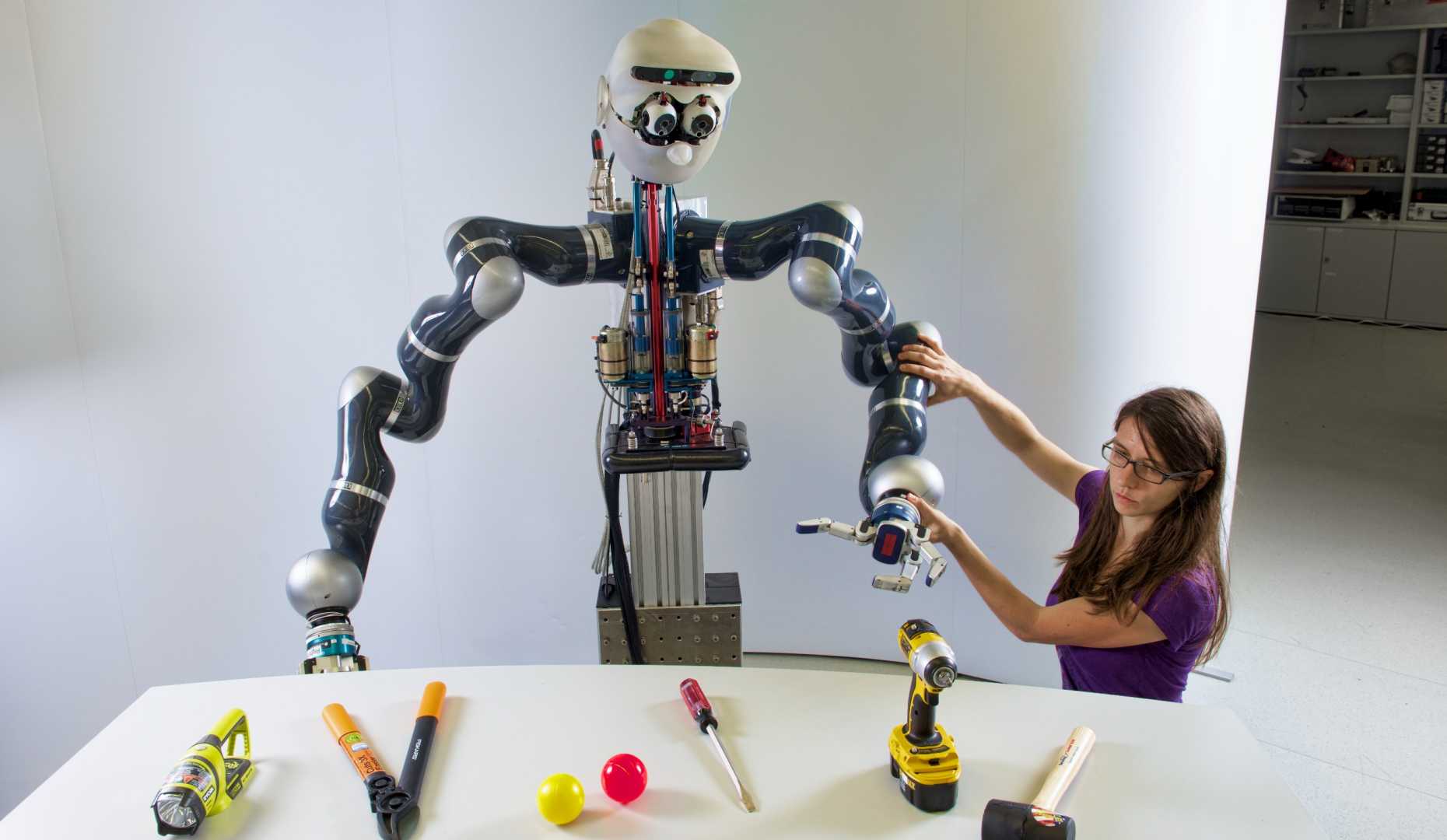Teaching machines how to learn
The machines that surround us in everyday life are not only becoming more intelligent, they’re also turning into gifted learners. To prepare the next generation of computer scientists for the challenges presented by this rapidly developing research area, ETH Zurich has joined forces with the Max-Planck-Institute for Intelligent Systems.
The term ‘artificial intelligence’ has been around since the 1950s, both in the world of science and in science fiction books and films. For a long time, many visions remained relegated to science fiction, as artificial intelligence lacked the ability to learn. But it is precisely this ability that is needed in cars that park themselves, computers that optimise processes autonomously and micro-robots that act as measuring devices or substance vehicles in the human body. With the ability to learn from experience and adapt, the dream of such intelligent machines is on the verge of becoming reality.
With more precise sensors and measuring techniques, we are capable of producing ever-greater amounts of data. “Big data” has triggered something of a digital gold rush. Just as the American prospectors of the 19th century panned the rivers for gold, the researchers of today sift through vast quantities of data in search of patterns and new discoveries. The challenge presented by the steadily growing mass of data and information is clear: we need to design systems that can evaluate huge data sets and draw useful conclusions – whether it is the use of health data to develop individualised therapies or computer programmes that can recognise the content of a camera image.
‘Machine learning’ has become an established part of research into artificial intelligence. As a key technology, it is applied in a variety of disciplines, such as robotics, automatic image recognition, 3D image reconstruction, automatic text analysis and the design of artificial systems based on natural ones that adapt to their environment.
Integrating PhD programmes
To educate the next generation of computer scientists in this rapidly changing area of research, ETH Zurich and the Max-Planck-Institute for Intelligent Systems (MPI-IS) have founded the research network “Learning Systems”. “We aim to integrate the PhD programmes in this area offered by ETH and the MPI-IS,” explains Joachim Buhmann, ETH professor in the Machine Learning Laboratory. Until now, the standard curriculum has offered few courses in this specialist field. That’s where the research network comes in. “Talented young scientists won’t have to go elsewhere to find outstanding educational programmes in this area; they’ll be able to find what they’re looking for in Switzerland and Germany,” adds Buhmann.

A summer school is currently being held at ETH to mark the official launch of the network. It offers PhD students from ETH and the MPI-IS the opportunity to learn more about each other’s work. “For example, if someone studying basic science at the MPI teams up with a PhD student from ETH to share their ideas for an applied research project, it could turn into a really fruitful partnership,” says Thomas Hofmann, Professor of Data Analytics at ETH Zurich. Future PhD students could also be part of two research groups simultaneously, at ETH and at the MPI-IS.
Students can already see the fantastic opportunities offered by the research network: “In part, we’re pursuing similar questions and now, thanks to the network, we’re able to work with each other instead of against each other,” says Nico Gorbach, a PhD student in the Machine Learning Laboratory at ETH Zurich. Alexander Herzog, a PhD student in the Autonomous Motion Laboratory at the MPI-IS, agrees: “It’s brilliant being able to exchange information on a basis of mutual trust.” By collaborating instead of competing, everyone will be able to move forward faster.
Breakthroughs take time
In his welcome speech at the summer school, ETH Rector Lino Guzzella reminisced about the promises made for artificial intelligence in the 1980s and 90s and noted how little has been achieved since then. He encouraged students to persevere in this area, reminding them that big breakthroughs don’t happen overnight.
Although great success may take decades of research, the research network “Learning Systems” certainly provides fertile ground for unique ideas. “We’re educating the next generation of researchers and we can’t wait to see how they will shape the intelligent systems of the future,” says Buhmann. PhD students from both institutions can exchange information and take advantage of the network’s expertise through joint seminars, conferences, workshops and summer schools. They also benefit from the shared access to the entire infrastructure to implement their innovative projects.
Research Network "Learning Systems"
The idea of a potential collaboration between ETH Zurich and the MPI-IS was born in 2010 and the partnership was made official in 2013. The network incorporates the research groups of five Max-Planck-directors from the MPI-IS in Tübingen and Stuttgart, and of 20 professors from five departments at ETH.
See also the spotlight article in the News of the Departement Computer Science: Shifting the paradigm: pioneering research network in learning systems established

